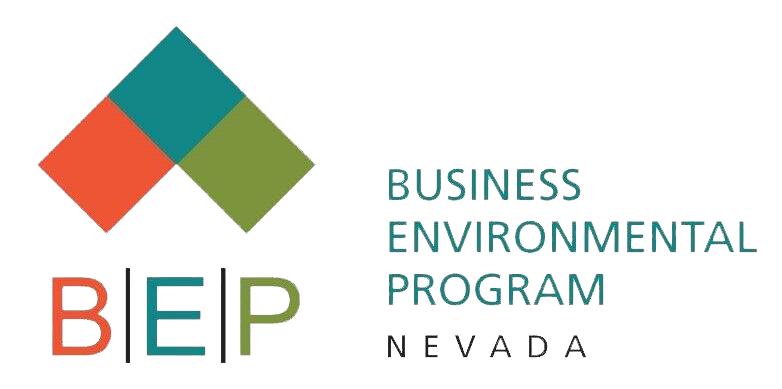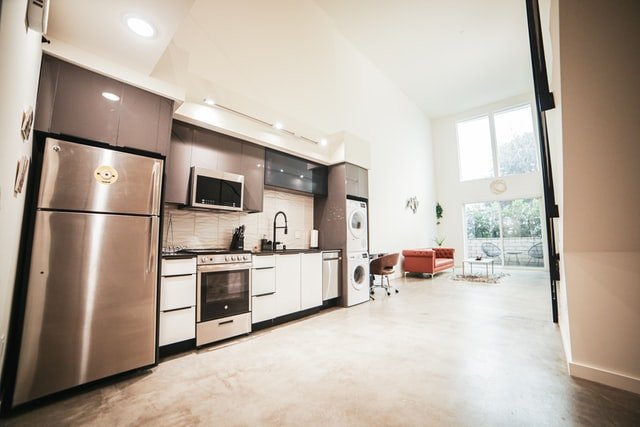Appliance and Furniture Showrooms in Nevada include retail that is dedicated to the sale of household electronics and furniture such as computers, small appliances, couches, and tables. There are many challenges to starting, restarting and managing your operation during good times, but additional challenges during the pandemic need even more careful planning, oversight and management. It is important to understand the COVID-19 requirements that may still apply to your industry, suggested best practices, and resources available to help you.
COVID-19 Requirements

Nevada’s Roadmap to Recovery lays out requirements for businesses with specific capacity limits and other requirements. Starting May 1st, 2021, the state transitioned to local authority for setting specific requirements by business types. Visit the Nevada Health Response website for the latest updates on COVID-19 Guidelines in Nevada.
Industry Best Practices
Some general best practices and tips that may help you comply with guidelines and help your customers and employees feel safe include:
- Require customers and employees to wear face masks
- Social Distance
- Stagger or limit arrivals of employees and guests, following current capacity limits
- Space showroom floor to allow for distancing
- Consider posting an employee at the entry door to greet guests, explain new protocols, and open/close the entry door to minimize the number of persons touching the door handle
- Install plexiglass/clear acrylic panels or barriers between the customer and cashiers
- Where possible, accept customers by appointment only
- Assign one sales representative only to a customer and have the sales associate shop with the customer and wipe/disinfect products the customer touches but does not purchase
- Innovate
- Offer curbside, delivery, and/or carryout operations
- Install and use a touchless, non-signature payment system
- Have customers pay through an app on their phones
- Cleaning
- Have hand sanitizer and sanitizing stations and products readily available for employees and customers
- Clean merchandise before stocking
- Establish new operating hours so you can close earlier to thoroughly clean the operation each night
- Use cleaning products that meet the EPA’s criteria for use against SARS-CoV-2 (the virus that causes COVID-19) – this list of products can be found on the EPA website here: List N: Disinfectants for Use Against SARS-CoV-2
- Read more about Cleaning and Disinfecting during a pandemic
Business Basics
Business basics are more important than ever. Evaluate your profit and loss statement. Look for ways to reduce operating costs. Analyze your cash flow and breakeven to evaluate the impacts of guidelines and best practices on your operations. As Nevada’s COVID-19 measures evolve you may need to continually adjust your operations. Here are a few things to think about:
- Get Help
- Contact a business development counselor at the Nevada SBDC by calling 800.240.7094 – we can help you assess your operations and decide on best strategies for your business
- For questions about cleaning and disinfecting, strategies to control new waste streams, or other environmental questions, contact an environmental business advisor at BEP at 800.882.3233
- Communicate
- Keep communicating with your customers on social media and your website with announcements about your current hours
- Be open about the measures you are taking to meet the new and updated guidelines; consider signage at your entrance so customers can be aware of the steps you are taking to prevent the spread of COVID-19 and to meet any new industry guidelines
- Expand Services
- Increase online offerings; explore selling through existing online retail platforms such as eBay
- Offer curbside pickup and delivery for online orders
- Offer free or reduced return charges for online purchases
- Offer gift cards
- Potential Cost-Saving Measures
- Reduce the amount of products in the store and only sell the best-selling, highest margin items
- Cross-train employees to work in different areas of the store
- Reduce hours to minimize utility bills and increase time for cleaning, for example instead of staying open from 10:00 AM to 8:00 PM operate from 10:00 AM to 6:00 PM
- Consider energy efficiency, waste minimization and other sustainability strategies
- Only turn on utilities that are needed – do not use all fans, lights, or air conditioners in the store when there are fewer people
- Creative Marketing
- Update or redesign your website; make sure it is mobile friendly
- Include online sales features on your website or use an existing online retail platform
- Create a following on social media and keep in touch with customers
- Use micro social media and focus more on the immediate neighborhood in order to bring in local customers
- Advertise through local homeowner associations
Resources
- Nevada Health Response: Business and Industry Compliance
- Retail Association of Nevada
- Nevada Health Response
- Nevada Department of Business & Industry, Occupational Safety & Health Administration
- Southern Nevada Health District (SNHD) COVID-19 Guidance for Businesses and Permitted Facilities
- Nevada Governor’s Office of Economic Development
- Center for Disease Control (CDC) Guidance
- US EPA List N: Disinfectants Approved for Use Against SARS-CoV-2
- Small Business Federal Financial Assistance
- U.S. Securities Exchange Commission Resources for Small Business
- National Retail Federation
- Home Furnishings Association



